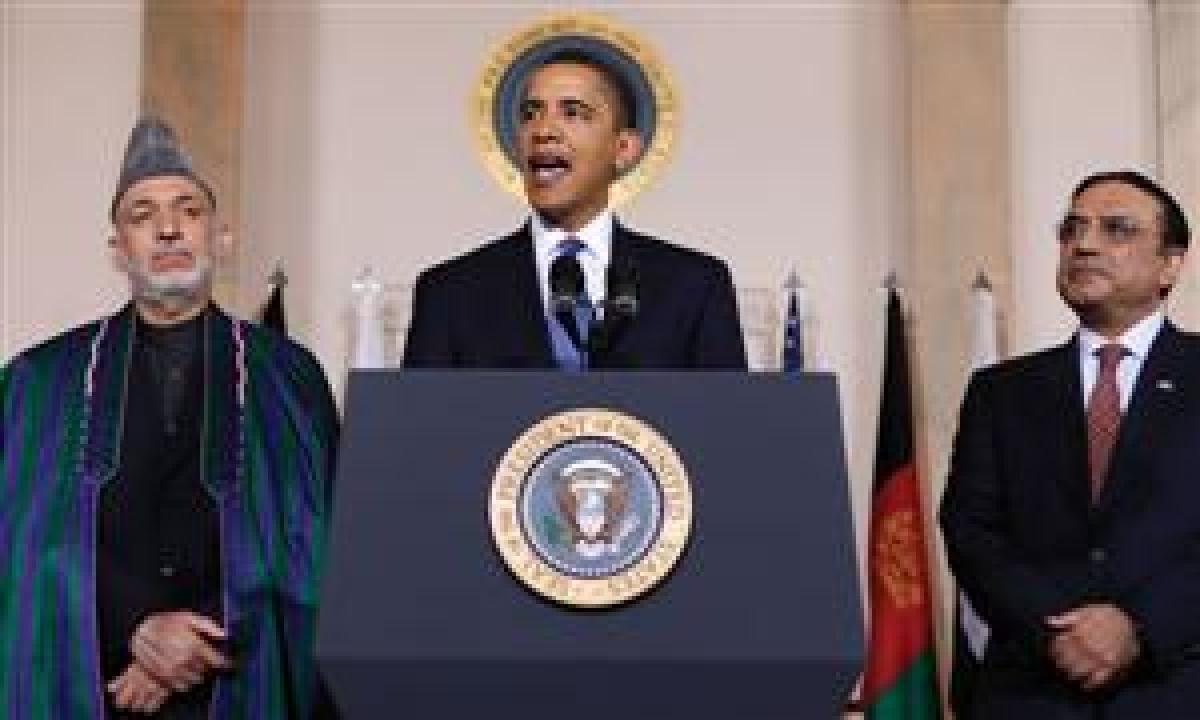Two seemingly unrelated BBC headlines from February may hold the key to the way ahead for our strategy in Afghanistan. From Pakistan, Prime Minister Raza Gilani said that "Pakistan would like to engage with the U.S. to build a new global strategic consensus for peace, security and stability in the region." From Iran, President Mahmoud Ahmadinejad has said "he would welcome talks with the U.S. as long as they were based on 'mutual respect.'"
We must understand that the most important fighting in the region is not in Afghanistan or Iraq—it is in Pakistan. Blinded by a light at the end of the tunnel in Iraq and economic woes at home, the American public has missed the story about the important combat going on there. These operations escalated in 2008 into open warfare between the new government in Islamabad and the Taliban in the tribal areas of the Northwest Frontier. Especially heavy fighting has and is occurring in the Swat Valley where Osama bin Laden is reputedly hiding.
The American media, until recently, had ignored Pakistan after the crisis following the assassination of Benazir Bhutto in December 2007. Pakistan has pitched in, at some political cost to the new regime headed by President Asif Ali Zardari, in militarily challenging Muslim extremists inside its borders. In January, the Taliban captured an entire police force; earlier they had interrupted the flow of NATO supplies through the Khyber Pass. Temporary truces and ceasefires were just that. Pakistan took an operational pause and in early May the fierce fighting resumed.
Now is the time for the new U.S. administration to focus the main effort on Pakistan. The Zardari government has also reportedly limited the scope of the country's Inter-Service Intelligence organization that had ties to the Taliban dating back to the war against the Soviet Union in Afghanistan. Nonetheless, the media remain focused on U.S. drone attacks that reputedly kill as many civilians as Taliban or al Qaeda fighters (for example the New York Times, "Strikes Worsen al Qaeda Threat," 25 February 2009). This focus is counterproductive; it alienates the very people we need the most—the Pakistanis.
Given these facts, the following framework might serve as a means to keep Pakistan in the fight and ultimately improve stability for the entire unfortunate region. No solution that does not include all regional powers, and which does not recognize the critical role of Pakistan, will work. First, partner more completely with Pakistan. We should do everything short of putting conventional military forces into Pakistan to achieve two very worthy objectives—scaling back the influence of Islamic extremists in the region (who are destabilizing both Pakistan and Afghanistan) and supporting the new and more democratic Zardari government in Pakistan. These actions need to occur yesterday. Second, improve relations with Iran. This may open doors and facilitate the cooperation that could help down the road in both Afghanistan and in Pakistan. Iran has real interests, many of them economic, in a stable and secure Afghanistan.
Afghanistan remains very much at risk, but the United States and NATO need to recognize that regional countries are better situated to restore security and stability in the long run. To this end, a promising next step might be a regional summit on the war raging across the Hindu Kush in both Pakistan and in Afghanistan. In fact, a mini-summit occurred early in May when President Barack Obama hosted the presidents of both Pakistan and Afghanistan at the White House. However, Iran needs to be a part of the equation. Whatever happens, there will be no long-term success in Afghanistan as long as the foreign presence remains very visible. The Soviet defeat in the 1980s taught that lesson in spades. The Taliban nearly faltered after the Soviets left and both Pakistan and the United States withdrew their support.
Accordingly, a summit hosted by Secretary of State Hillary Clinton with leaders from Iran, Afghanistan, Pakistan, and NATO might do wonders in clarifying areas for cooperation. NATO would relish the opportunity to relinquish its military obligations in Afghanistan to say nothing of the United States. Pakistan has a big dog in this hunt. Body bags are flowing into Karachi and other Pakistani cities. Any reasonable long-term solution will have to involve the Pakistanis, just as it did with their covert role against the Soviets in Afghanistan—Charlie Wilson's War notwithstanding.




